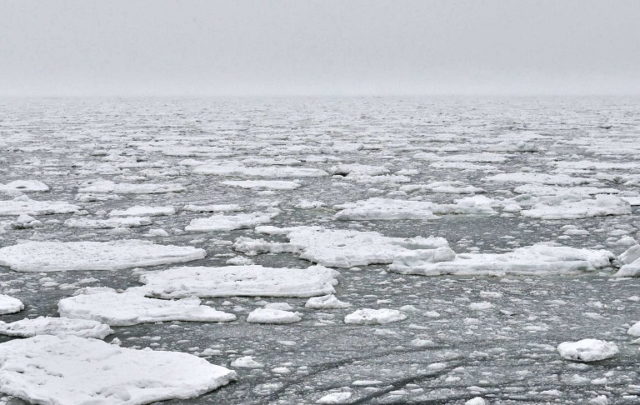I have a BSc in Information Systems from Kingstom University U.K., an MBA in Finance from Stern School of Business at New York University, USA, and a MA in Integrated Studies from Athabasca University, Canada. I have worked within the financial industry for the past 25 years, and am also a research member of the B.C. Alberta Social Economy Research Alliance (BALTA) looking at the linkages between issues of sustainability and models of ownership and finance. Most recently I have completed a book, to be published shortly by Springer, titled “Energy and the Financial System”.
The Impacts Of An Ice Free Arctic: A Climate Paradigm Shift?
The paper “Mitigation implications of an ice-free summer in the Arctic Ocean”[4] provides estimates for the effect of an ice-free Arctic in the month of September in 2050 and 2040. As the paper comments, the possibility of an early loss in arctic sea ice has not been included in any of the Integrated Assessment Models used to assess the societal impacts of climate change.
June 21, 2017
Why Greenhouse Gas Emissions Did Not Really Stabilize In The Past Few Years
With atmospheric levels of CO2 recently jumping at a rate of 3ppm per year, CO2e levels could soon be increasing at 4-5ppm per year. A level of 550 ppm CO2e, consistent with a 3 degree centigrade rise in temperatures, would then be reached in the early 2030’s.
May 2, 2017
Exiting the Anthropocene
The need for rapid changes in the way that we run our societies, and the acceptance that the old geographical and climatic certainties may rapidly change, is needed. The thought that we can simply geo-engineer our way out of trouble may be proven to be the naiveté of a still young civilization.
April 10, 2017
Renewable Electricity Generation In Asia – A Realistic Assessment
The situation in Asia shows the problem facing the global electricity sector; as rich countries struggle to peak or reduce emissions, newly industrializing countries are rapidly increasing fossil fuel usage as they move through the energy intensive early stages of industrialization.
February 9, 2017
Renewable Electricity Generation In North America – A Realistic Assessment
Taking into account fugitive methane emissions from the production and distribution of natural gas, the U.S. electricity-generating sector may not reduce overall climate-warming emissions at all during the foreseeable future.
February 1, 2017
Renewable Electricity Generation In Western Europe & Scandinavia – A Realistic Assessment
Western Europe and Scandinavia have been held up as leaders in moving to a low-carbon future in electricity generation, but the reality is very mixed. Scandinavia benefits from its large hydroelectric resources, relative to population size, and therefore has a very low electricity carbon footprint. France is low carbon due to its predominantly nuclear-based generating capacity.
January 10, 2017




